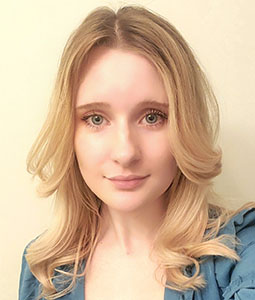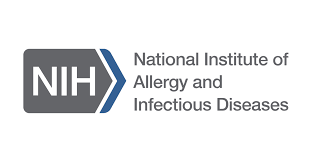T35 Program
Funding support is provided by the National Institute for Allergy and Infectious Diseases (NIH Grant Number: T35AI165252).
The NIH-funded T35 Research Traineeship Program is designed specifically for master’s and pre-dissertation doctoral students in physical and/or quantitative sciences from across South Carolina and the United States. This is an 11-week, full-time intensive course-based training program to work alongside established clinical scientists on one or more Big Data Health-related studies. In addition to formal classroom training (at no cost to the student), each student will receive accommodations and a stipend to be involved in a specific research project, actively participating in a hands-on manner in a research laboratory currently conducting studies related to Big Data Health Science. As you prepare for a career in Big Data Science, you can learn about research that involves Big Data and work alongside well-known established researchers in a full-time, hands-on setting. For commonly asked questions, feel free to visit our Q&A page.
Program Overview
The University of South Carolina Big Data Health Science Center is requesting applications from master’s and pre-dissertation doctoral students for a 3-month, full-time (40 hours per week) program to work alongside established clinical scientists on one or more Big Data Health-related studies. Each student trainee will be involved in a specific research project, actively participating in a hands-on manner in a research laboratory currently conducting studies related to Big Data Health Science. Investigators, laboratories, and brief descriptions of areas of research are provided in the T35 mentor page.
Students will be matched with a mentor according to the students’ interests and mentor availability. In addition, each trainee will receive formal classroom training (at no expense to the trainee), participate in discussions on responsible conduct in research, participate in a specifically designed T35 seminar series presented by many of the T35 preceptors, attend journal groups, attend campus-wide activities of interest as part of their training experience, and will have opportunities to present their work.
This is an excellent opportunity for students to obtain training and significant exposure to research in an active laboratory conducting research related to ongoing NIAID-funded Big Data research projects that utilize 1 or more of 5 large existing data sources.
Eligibility
This program is for masters or pre-dissertation doctoral students in physical and/or quantitative sciences. Students participate full time for 3 consecutive months. The preferred time period is from mid-May through mid-August. The following is a full list of eligibility requirements:
- Must be a full-time masters or pre-dissertation graduate student from a quantitative or physical science department with a minimum GPA of 3.5
- Must have completed at least one year (two semesters) of study before the summer training begins
- Must express interest in exploring independent research in Big Data in infectious disease and/or healthcare
- Must receive a formal agreement from home department/school for summer release to attend the training
- Must commit to the 3-month formal 40-hours-per-week training engagement in the T35 program
- Must commit to submitting a publishable manuscript in an area of Big Data infectious disease research no later than one year after the summer training
- Must be a U.S. citizen or permanent resident (per NIH rules)
Resources
In addition to the specific mentor with whom each student will work, trainees will have access to other faculty and researchers for formal and informal discussions. Additionally, a full range of technical and computer support will be provided during the 3-month training period.
Program Benefits and Support
The program will provide the following support to Trainees during the training period:
- A stipend up to $2,068 for each of the three months that they participate in the program (up to $6,204 total)
- Support to travel to campus (See Travel Reimbursement Policy linked here)
- Up to $1,000 of travel support per trainee to present their research at national and local conferences
- Support for health insurance (if uninsured), tuition, and subject fees
- Housing will be provided during the training period
- Funding to publish a manuscript
- Up to $200 funding for necessary computing software
- Invitation to present on your experience to NIH program officers at our annual Big Data Health Science Conference (in early February)
- Matched with a mentor
- Participation in a funded Big Data research project
- The opportunity to network with influential people in Big Data Science
Program Schedule and Deadlines
February 18, 2025: Application deadline
February 27, 2025: Trainee selections are made
March 6, 2025: Traineeship offers are awarded
March 14, 2025: Deadline for selected trainees to confirm participation
March 21, 2025: Deadline for selected trainees to submit additional pre-program items
May 9, 2025 to July 25, 2025: Anticipated traineeship period
Traineeships are awarded each year on a competitive basis.
Individualized Mentoring Plan (“Learning Contract”)
Once a mentor is matched to a trainee, the trainee and mentor will meet with the executive committee to develop an individual development plan through a structured educational learning contract, which will in turn be reviewed and approved by the program directors (PDs). The digitized contract will document:
- Goals and outcomes of the mentorship
- Specific roles and expectations of each party
- Anticipated numbers and types (face-to-face/email) of meetings
- Plans and objectives for submission of a manuscript and draft extramural grant application
- Any additional logistics for the one-year formal mentoring relationship, including joint attendance at academic conferences and meetings where necessary.
As you and your mentor work together, you will regularly review and revise the learning contract to ensure that all goals are met and any mutually agreed upon changes are documented. These contracts are expected to be unique for each trainee, depending on previous professional and research experience. As part of the learning contract, short-term outcome data, such as presentations, didactics/conferences, and continued real-time monitoring of your scholarship activities (publications and conference submissions) will be monitored.
You can find a copy of the 2022 learning contract template here: 2022 Learning Contract Template
Application Information
If you would like to apply, please:
- Discuss your interest in participation in this program with your faculty advisor.
- Correspond via email with Dr. Bankole Olatosi and Ms. Audrey Auen, indicating an interest in applying for the program.
- Complete the application form and required documents (details below).
The following is a list of required documents to submit online alongside your application:
- An essay (1-2 pages) describing your research interests and career objectives. This will help us get you started on a project that interests you and match you with the right mentors to help
- An up-to-date curriculum vitae
- A letter from the home school/department advisor (secondary mentor) confirming the home institutional support for you to participate in the T35 program as a trainee.
- A personal statement describing your future professional goals and how this experience will contribute to your future goals. (Please limit to 1 page)
For questions about the application process or the T35 experience, please visit our Q&A page or contact Dr. Banky Olatosi at olatosi@mailbox.sc.edu or Ms. Audrey Auen at akkuhn@email.sc.edu
All application materials must be received by February 18, 2025
Traineeship offers will be awarded on March 6, 2025
T35 Executive Committee

Bankole Olatosi, Ph.D
Program Director, Assistant Professor and MHA Program Director, Health Service, Policy and Management, Arnold School of Public Health

Neset Hikmet, Ph.D
Program Co-Director/MPI, Professor at the USC College of Engineering and Computing (CEC), Director of Innovation Think Tank Lab @ UofSC, Co-Director, South Carolina Center of Assistive Technology and Educational Research, Director of the BDHSC Technology Hub

Xiaoming Li, Ph.D
Program Co-Director, Professor and Endowed Chair, Health Promotion, Education and Behavior, Arnold School of Public Health

Audrey Auen, MPH
Program Coordinator, Big Data Health Science Center, UofSC
Journal Club Archives
About this section
Each month during the summer session, each trainee will read and discuss a relevant published peer-reviewed article from a high-impact medical, public health, or socio-behavioral journal applying data science to infectious diseases. Both mentors and trainees will select the articles and will choose a day and time slot option that works for both the mentor and trainee to attend and present. On their selected day, each trainee will lead a 30-minute presentation on the article, followed by a 15-minute discussion/Q&A. Discussions focus on the importance of the research within the context of current issues in BDS for infectious disease, and responsible conduct of research. he discussions also consider the theoretical framework of the research and methodologies, including analysis, and the interpretation of those data. All articles are archived right here, so click through to see the interesting articles that our students have chosen to share!
2022 Journal Club Articles
2023 Journal Club Articles
2024 Journal Club Articles
A Special Thanks to Our Funder
The BDHSC would like to thank the National Institute for Allergy and Infectious Diseases for making this program possible through their T35 grant award (T35AI165252).



